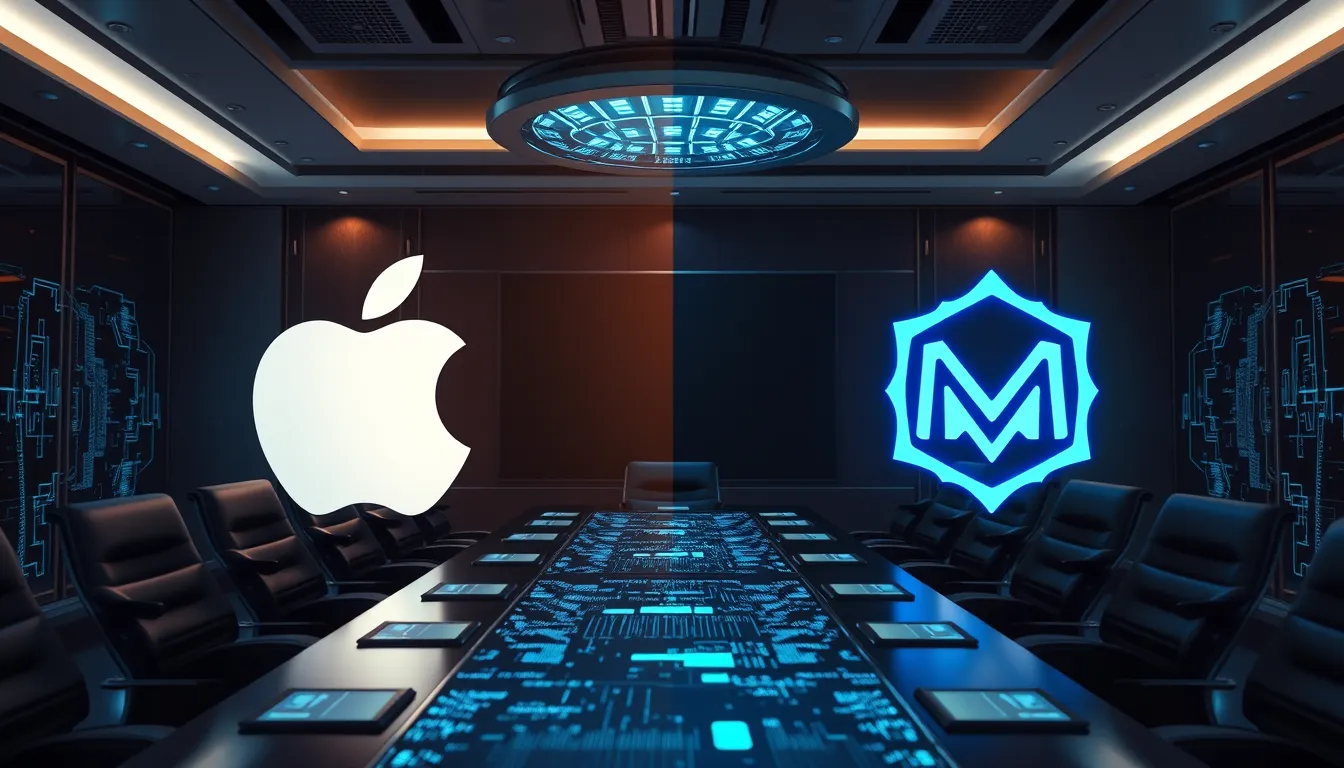Now Reading: Apple AI Leadership Shakeup: Strategic Innovation Impact
-
01
Apple AI Leadership Shakeup: Strategic Innovation Impact
Apple AI Leadership Shakeup: Strategic Innovation Impact

Apple AI Leadership Shakeup: Strategic Innovation Impact
Apple is currently facing an unprecedented moment with its recently announced leadership shakeup, where one of its most influential AI executives has departed to join Meta. This major change has ignited discussions across the tech industry about the potential cascading effects on innovation, company culture, and the competitive landscape.
The High-Stakes World of Tech Leadership Transition
The recent Apple AI leadership shakeup is a testament to how fast technology and corporate strategies evolve. The departure of a key AI executive not only represents an exodus of talent but also signals a potential paradigm shift in how Apple approaches machine learning innovation and neural network technologies. By venturing into new territories such as personalized technology and on-device intelligence, Apple has long set industry standards.
At the heart of the matter is an AI executive departure that carries significant weight. The shaken leadership structure has forced analysts to re-examine Apple’s future prospects and its ability to maintain its competitive edge. With an era marked by rapid technological advancements, Apple’s culture of innovation is more critical than ever.
Impact of Apple AI Leader Departure on Innovation
One of the most talked-about aspects of this transition is the impact of the Apple AI leader departure on innovation. Experts argue that the role played by this executive was instrumental in driving breakthroughs in machine learning innovation and neural network technologies. Without such visionary leadership, Apple’s roadmap might face hurdles in its quest for pioneering solutions.
Key areas affected include:
- Development of advanced AI-powered features
- Integration of robust neural network technologies
- Expansion of on-device intelligence
The loss of such pivotal leadership has put the spotlight on Apple’s internal strategies. The company is now reassessing its talent retention policies, a move that might prompt organizational changes in terms of hiring and promoting new leaders. It is a critical test for Apple to ensure that its legacy of innovation continues unabated.
Meta AI Recruitment and Broader Industry Implications
The transition becomes even more intriguing when considering Meta’s aggressive AI recruitment strategy. Meta, known for its expansive digital footprint, continues to invest heavily in AI research. The move to attract top tech talent, as evidenced by the recent acquisition of a high-profile Apple executive, underscores Meta’s intent to build a formidable portfolio of AI-driven products and services.
The competitive tech landscape now witnesses an intensification of the battle for innovation supremacy:
- Apple must navigate the challenges of a tech leadership transition amid high expectations for continued innovation.
- Meta leverages this opportunity to reinforce its position by gaining strategic insights from a leader renowned for transforming Apple’s machine learning innovations.
- The overall industry is prompted to rethink the approach to talent acquisition, balancing the demands of innovation and the struggles of retaining top executive talent.
For further details on each company’s journey, readers can visit Apple’s official website or learn more about Meta’s initiatives by exploring Meta’s official site.
Navigating the Future: Strategies for Sustained Innovation
In light of the Apple AI leadership shakeup, it becomes imperative for both companies to implement strategic initiatives.
Apple can take the following steps:
- Enhance internal career development programs to retain innovative minds.
- Ramp up recruitment in emerging tech sectors, particularly in AI and machine learning.
- Revisit strategic partnerships with tech startups to infuse fresh ideas into the ecosystem.
Meta, conversely, stands to benefit from this transition by integrating proven leadership skills into its dynamic framework. Their focused approach on tech leadership transition could serve as a model for future M&A or talent acquisition strategies in the tech industry.
The Road Ahead for Apple and the Industry
The implications of this high-impact leadership change extend far beyond the borders of Apple. The Apple AI leadership shakeup is a wake-up call for other tech giants to proactively refine their leadership and innovation frameworks, ensuring they remain at the forefront in an increasingly competitive landscape. With industry trends leaning towards rapid advancements in digital technology, companies must balance visionary leadership with agile execution.
While the departure of a top AI executive might seem like a setback, it could also herald a new era where challenges drive creativity and prompt revolutionary breakthroughs. The decision to join Meta is seen not just as an executive move but as a strategic pivot that may well redefine tech leadership standards across Silicon Valley.
In conclusion, the current Apple AI leadership shakeup underscores a period of transformative change. It brings to light the critical interplay between tech leadership, innovation, and strategic direction. As Apple undertakes efforts to patch the emerging leadership gap, the move also highlights the competitive strategies adopted by industry players such as Meta, intent on capitalizing on new opportunities. The ramifications of this executive departure are already echoing through the corridors of innovation, urging all tech companies to rethink their approaches to leadership and talent management in the relentless pursuit of progress.
Through careful analysis and strategic repositioning, both Apple and Meta are poised to lead the next chapter in artificial intelligence innovation. Their actions will undoubtedly influence the future trajectories of technology, setting a benchmark for talent retention and dynamic leadership transitions.

























